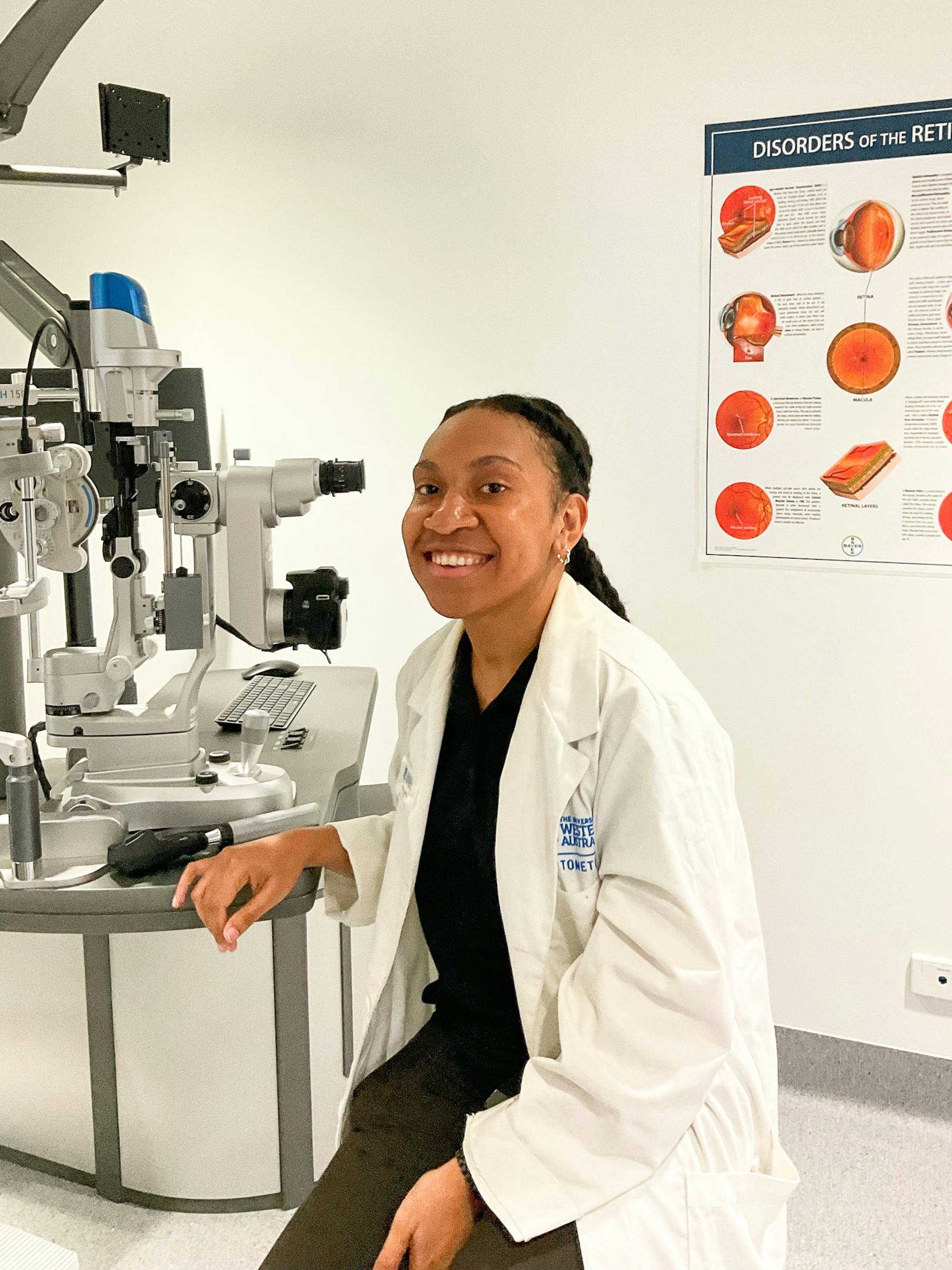Vitty Seloka is in her third year studying in UWA’s Doctor of Optometry program, and is currently taking part in clinical rotations at the university’s Eye Health Centre of WA, gaining practical experience to prepare for a future working as an optometrist.
Before beginning the Doctorate, Vitty took the Approaches to Wicked Problems unit through the McCusker Centre for Citizenship, adding a uniquely practical, community-focused experience to her undergraduate Biomedical Science degree. Vitty recently shared with us about her experience in the unit, and the insights she gained to take with her into her ongoing studies and career.
What was the ‘wicked problem’ that you tackled with your classmates and project sponsor?
Vitty: My group focused on homelessness, working with the Rev Stuart Fenner to increase social connection in the Midland Ascension Emergency Food Relief service.
One of the insights I gained from this unit was understanding that a major cause of homelessness is social exclusion. I think many people think simply of the cause of homelessness being a lack of employment. We learnt how a lack of social connection has factored into the growth of homelessness, and how it prevents those who experience homelessness from finding their feet.
Some ideas our group come up with to increase social connection at Midland Ascension Hall was to introduce a community garden to get the community involved, and to do ‘love letters to strangers’. Love letters to strangers was an idea developed by Hanna Brencher in 2012. I really loved this idea the most as it wasn’t conventional but personal and intimate, allowing strangers to be able to encourage each other, to connect and to support each other.
Why did you enrol in Approaches to Wicked Problems?
Vitty: I have a lot of empathy towards those experiencing homelessness. When I found out there was a unit that enabled students to engage with this social issue, available as a summer unit, it caught my attention!
Why do you think it is important for students to engage in critical thinking about social issues and practice active citizenship?
Vitty: Engaging in critical thinking about active citizenship and leadership helps students to develop their capacity to be caring, connected, and socially engaged within the community. It is important to develop and use not only critical thinking, but also creative thinking and problem-solving.
Participating in Approaches to Wicked Problems helped me become a more adaptable and socially-engaged citizen, as I believe it can for other students who take on the unit!
What would you say to other students considering the Approaches to Wicked Problems unit?
Vitty: I believe most people have their own capacity to be caring for others in the community, whether they act on that by working towards education, or addressing climate change, poverty, or homelessness. I would definitely recommend this unit to other students, it is an opportunity to undertake something different from the theory-heavy contents we are used to at uni, it is something meaningful and wholesome.
What are you doing now in your study and what are the next steps for you?
Vitty: We are currently doing clinical rotations at Eye Health Centre of WA (right next to Ezone), as well as theory work from lectures, problem-based learning, and team-based learning. I think the next step of my studies is learning how to be a practicing optometrist. It is a step up from theory, putting what I’ve learnt into practice, but I believe in my dedication to learning and hopefully I’ll reach this goal!
Alongside all the study I still try my best to continue being an active citizen where I can. I helped every Tuesday after classes at the Soup Kitchen in Belmont ADRA Community Care Centre from 2021 till the end of last year (they are now on hiatus). There is a Homeless Connect Project in Perth for Optometrists to volunteer which I would love to join one day when I become a competent optometrist using not only my clinical knowledge but also knowledge I have learnt from this unit.
Ultimately, I think it is important on a day-to-day basis to encourage social connection with whoever I might meet whether it be a patient, an individual affected by homelessness, or someone I’ve know for a long time. In a way I feel this is also my social responsibility in becoming an active citizen; my small effort for combating a big social problem.

